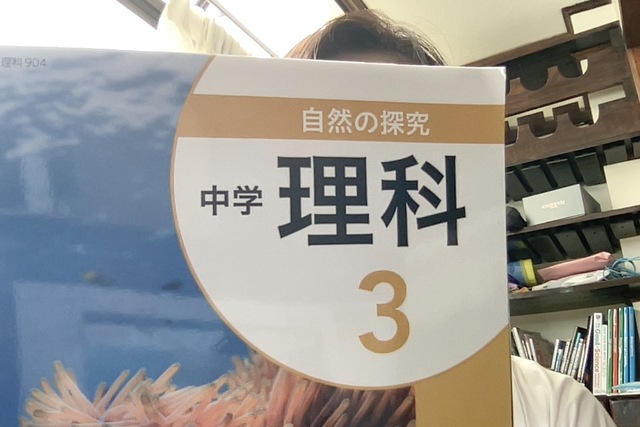(For international teachers, I will write in English at the end of this content. Please read below.)
私が教員になった当初、自分が英語を使って仕事をするとは夢にも思わなかった。
理科、特に生物を専攻していたために大学の教科書は英語で書かれたものもお世話になったが、英語で教えるとはまた次元の違うものだ。
イマージョンに限らず、英語話者が勤務している学校は日本でも多くなってきた。
英語話者の先生たちはどのような心境で学校勤務を続けているのだろうか。
英語話者の先生たちは、日本語も流暢とは限らない。
日本人教員はどのように彼らとコミュニケーションを取ったらいいのだろうか。
まず、日本人の癖として完璧な英語を話さなくてはならないと考えがちだ。
例えば、「日本語は話せますか?」と聞くとすれば、日本人なら「Could you speak Japanese?」と聞くところだが、この場合、「Japanese OK?」でも十分通じるはずだ。
最近、「やさしい日本語」が脚光を浴びるようになってきた。
いかに分かりやすく伝えるか、これが大事である。
英語ができなくてもいいのである。
やさしい伝わる日本語を話すのが先決である。
一方で、担当になったからには積極的に英語を話そうとしたり、一緒に教材づくりや授業の準備をしたりすることが大事である。
もちろんだが日本の教育に馴染んだ英語で書かれたコンテンツを見つけるのは至難の業だ。
いちから手作りしている先生方がほとんどだろう。(ぜひ私のブログの教材を参考にしてほしい!)
小学校・中学校のカリキュラムを正確に再現するには莫大な労力が必要だ。
用語ひとつであっても、ニュアンスの違いというものがある。
最終的に生徒の前に出していい教材かどうかは日本人教員が判断しなければならない。
一例として、私が心がけていたことを挙げる。
基本会話
・無理して英語を話そうとしない。できる範囲で英語にする。また、英語話者が英語のネイティブスピーカーとは限らない。その人に合った言語を選択する。
・敬語はできるだけ使わない。(最初に敬語は使わないよ、と宣言しておくとなお良い)
・です、ます調で話す。(文末がどこか分かりやすくなる)
・主語を省略しない。(日本人は主語を省略しがち)
・日本人に話す7割くらいのスピードで話す。
・逆三角形の文章構造で話す。(これは新聞等で使われる手法で、重要部を最初に話し、後から補足を付け足していく。英語や他言語の構造に近いので伝わりやすい)
教科のこと
・学習指導要領について話しておく。(文部科学省のサイトに学習指導要領の英語版があるので利用すると良い)
中学校学習指導要領英訳版(仮訳) - 文部科学省https://www.mext.go.jp › new-cs › youryou › eiyaku
・日本語版のプリントを示して、どのような授業をしてもらいたいか明確な意見を持っておく。下手に遠慮しない。
・実験や実習を伴う教科の場合は、日本人が主導する授業をしてみてどのような実験実習にするかイメージを持ってもらう。
勤務について
・有給休暇の取り方や時間割変更の見方、職員室の不文律、ロッカーの使い方に至るまで教科担当、学級担任から細かく教えてあげる。(外国で生活、勤務するというのは思ったより骨が折れるものだ)
・一緒にひとつのものを作っているという感覚を忘れないようにする。分担制ではなく、共同体として行動するようにする。
・日本語が分からないからといって、外国人教員がいるところで彼らの愚痴を言わない。(悪口というのはなんとなく伝わる)
・一方で外国人教員とどのように接したらよいか、管理職や同僚に定期的にアドバイスをもらっておく。自分がどのように接しているか客観的に見てもらうことも大事。(ひとりでため込まない!)
・どのように勤務するか、授業をしてほしいかを率直に伝える。
たくさんあって既に嫌になっている方もいるかもしれないが、要は相手に敬意をもって積極的に関わる努力をすればよいだけだ。
When I first became a teacher, I never dreamed that I would be working in English.
As a science major, especially biology, I was also indebted to university textbooks written in English, but teaching in English is a different dimension.
Not only immersion schools, but also schools where English-speaking teachers work are becoming more and more common in Japan.
How do English-speaking teachers feel about continuing to work at their schools?
English-speaking teachers are not always fluent in Japanese.
How should Japanese teachers communicate with them?
First of all, as a habit of Japanese people, we tend to think that we must speak perfect English.
For example, if you ask, "Japanese OK?" , Japanese people would ask, "Could you speak Japanese?"
Recently, "easy (and kind) Japanese" has come into the limelight.
The key is to communicate in a way that is easy to understand.
It does not matter if you cannot speak English.
The first priority is to speak easy Japanese that can be understood.
On the other hand, since you are in charge, it is important to actively try to speak English and to work together in creating teaching materials and preparing for classes.
Of course, it is extremely difficult to find content written in English that is familiar to Japanese education.
Most teachers probably make their own materials from scratch. (Please take a look at the teaching materials on my blog!)
It takes an enormous amount of effort to accurately reproduce the curriculum of elementary and junior high schools.
Even a single term has different nuances.
In the end, Japanese teachers must decide whether or not the material is acceptable to put in front of their students.
As an example, here is what I tried to do.
Basic conversation
・Don't try to force yourself to speak English. Use English to the extent you can. Also, English speakers are not always native English speakers. Choose a language that suits the person.
・Avoid using honorifics as much as possible. (It is better to declare at the beginning that you will not use honorifics.)
・Use "desu, masu" when you speak. (It makes it easier to know where to end a sentence.)
・Do not omit the subject. (Japanese people tend to omit the subject.)
・Speak at about 70% of the speed you would speak to a Japanese person.
・Speak in an inverted triangular sentence structure .(This is a technique used in newspapers, etc., in which the important parts are spoken first, and supplementary information is added later. This is similar to the structure used in English and other languages, so it is easier to convey the message.)
Subject matter
・Talk about 学習指導要領Courses or Standard of Study (You can find an English version of the Courses of Study on the MEXT website.)
中学校学習指導要領英訳版(仮訳) - 文部科学省https://www.mext.go.jp › new-cs › youryou › eiyaku
・Show them the handout of the Japanese version and have a clear idea of what kind of class you would like them to teach. Do not be shy.
・If the subject involves experiments or practical training, try to give a class led by a Japanese teacher to get an idea of what kind of experiments and practical training you would like to see.
Working hours
・The teachers in charge of subjects and classroom teachers will give detailed instructions on how to take paid off, how to change the timetable, the unwritten rules of the staff room, and even how to use lockers. (Living and working in a foreign country is harder than you think.)
・Don't forget that you are working together to create something.
・ Don't complain about them in the presence of foreign teachers, even if you don't understand Japanese. (It is somehow understood that it is a bad word.)
・On the other hand, ask your manager and co-workers for advice on how to communicate with foreign teachers on a regular basis. It is also important to have them look at how you are communicating with them objectively. (Don't keep it to yourself!)
・Tell them frankly how you work and what you would like them to do in class.
There are a lot of them and some of you may already be sick of them, but the bottom line is that you just need to make an effort to be respectful and proactive in your involvement with them.
Translated with www.DeepL.com/Translator (free version)

















